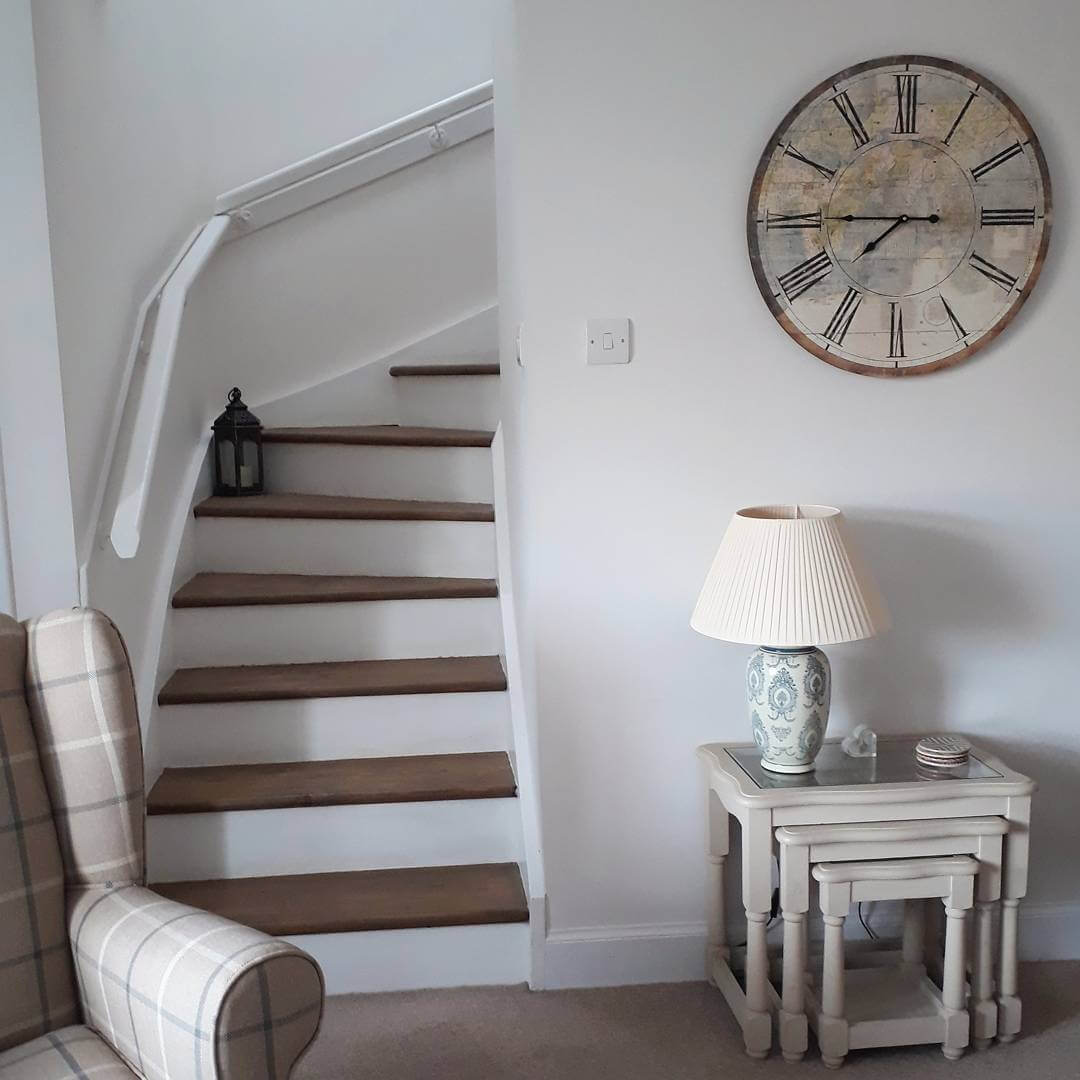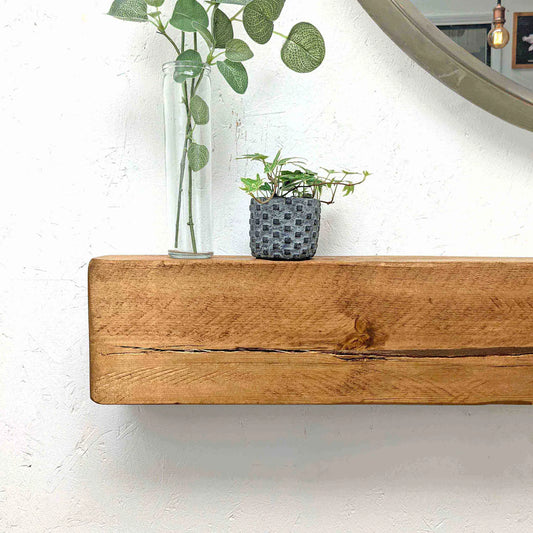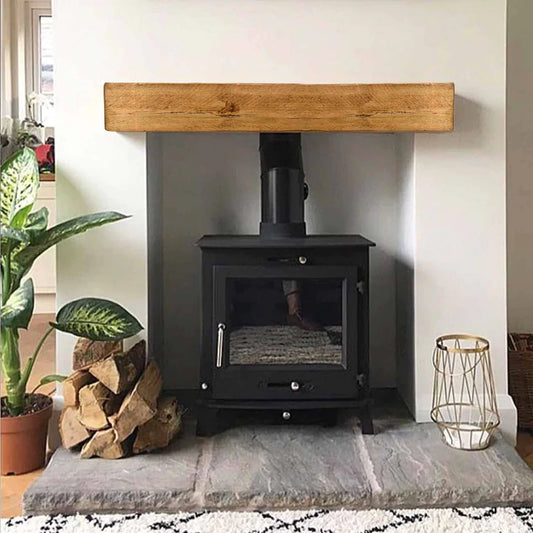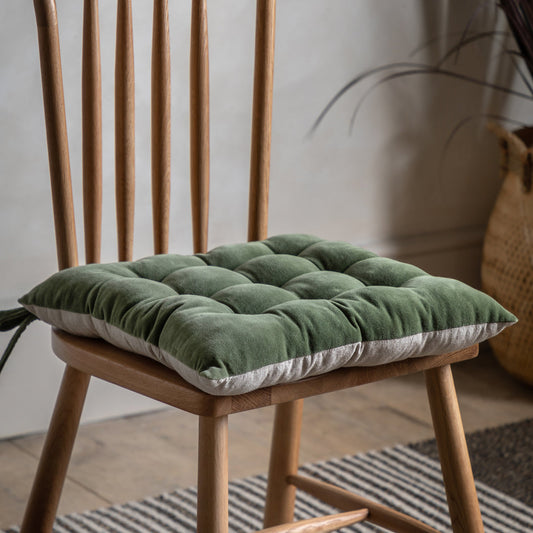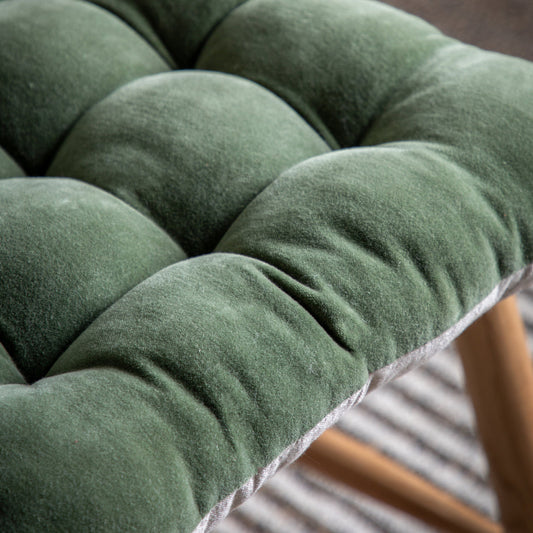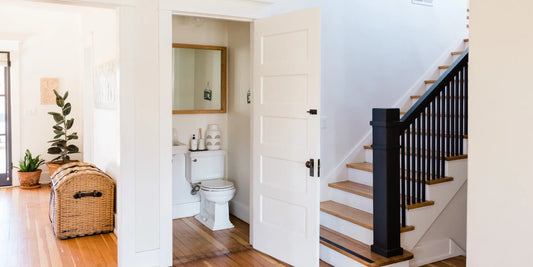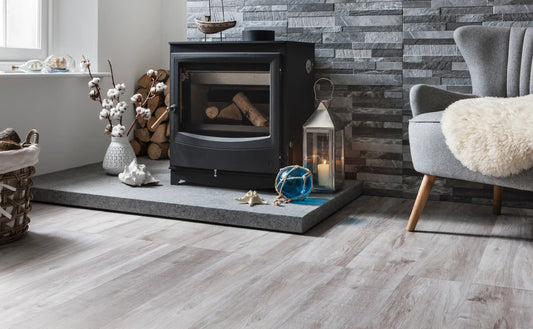Please note: This article may contain affiliate links. All recommendations and styling advice are provided as helpful suggestions only, please always research thoroughly before making any major changes to your home.
Photo credit: with permission from Jacqui @littlerosecottage via instagram
Saving money for the deposit on your first home may be a little daunting. We're all familiar with the news headlines that tell us how tricky it is to get on the housing ladder, and how much faster house prices are rising in comparison to our salaries. But, if you're lucky enough to live in a part of the UK where it's still possible to buy a home (even if it's not a complete walk in the park), there are ways to make it that little bit easier to save up the deposit you need. My boyfriend and I bought our first home in the summer of 2017, aged 25, and these are the tricks and tips we learnt along the way...
1) Set yourself realistic goals
First, figure out what your goal is. If you know that you’re going to need X as a deposit (let’s call in £15,000 for easy maths), you have more chance of reaching it. So, work out how many months you have to save, and how much you can save in that time. For example, if you can save £500 a month, it will take you 2.5 years to reach your goal.
It’s important you set yourself a realistic goal as there’s no point having a really tight one - else you may be setting yourself up for failure. Having a life and spending a little money along the way is really is the key to success, and your life shouldn't be put on hold if you can possibly help it. So, be sure to pay yourself fun money - we allocated ourselves £25 a month in 'fun' money, meaning we could go for a coffee, go out for dinner or enjoy a little day out somewhere.
2) Create a separate bank account
This is probably the most important tip of all. If all your money is in one account, you won’t know how much of it is for bills, savings or personal spending… it just becomes messy and hard to manage. So, open up a separate savings account. Move your money as soon as you receive your salary, or on the first/last day of every month. This way, you'll know what you have left for that month and can act as if that money has already been spent - I thought of it as "not being mine anymore" once it was moved. Of course, it's there if and when you need it for emergencies, but by moving it into a separate account will help prevent you from spending all of it. (Just make sure you move it into an instant access savings account you can access if you're worried you might need to dip into it).
3) Do I really need this?
Analyse your bank statements at the end of each month: what direct debits are going out, and what are you unnecessarily spending money on? Again, enjoy life but definitely know your limits. Is it too many coffees, or maybe a gym membership you’re not using – can you start running outdoors for free? Do you really need a new pair of jeans or can your current ones make do for now?
Before you know it, £35 here, £50 there and £15 here = £100. That’s a little shy of ¼ of your monthly savings target. Take a look and really tighten the belt wherever you can.
4) Earn what you can on the side
Nowadays, it seems like everyone has a 'side hustle' of some sort. If you have any time left in the week (and you're prepared to work a few more hours), why not see if you can boost your earnings to help reach your savings goals a bit quicker? Paid overtime at work, a second part-time job or some freelance work might help you to do this. Just be sure you're not stretching yourself too thin - your health should come first.
5) Check regularly
We kept a close eye on our bank accounts from our mobile phones, so make it easy for yourself and set up online banking if you haven't already done so. Check regularly and make sure nothing untoward is happening. You'll also start to understand your spending habits a lot better if you make a daily habit of checking your bank balance.
6) Motivate yourself
Download either the Rightmove or Zoopla app for a browse of what might be yours one day. Get excited about your future! Many people believe that by immersing yourself in your vision, you’ll begin to attract it - so perhaps it wouldn't hurt to be clear about what it is that you want, whether you believe in all that 'law of attraction' stuff or not. Set up property alerts for the areas you might like to live in, set your requirements (i.e. price, bedrooms, and garden requirements) and look at the properties that could be yours one day. I found that doing a little bit of house hunting every now and then kept me on track with my savings goals.
Hopefully these tips help you gather the savings you need for your first home. But I'd love to hear - what situation are you in? Are you saving up for your first home, or is that not on the cards for you right now? Would you prefer not to own your home? Do you have any tips if you've already bought a place of your own?
Pin this for later


